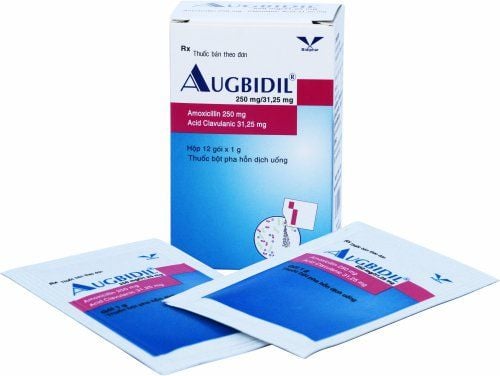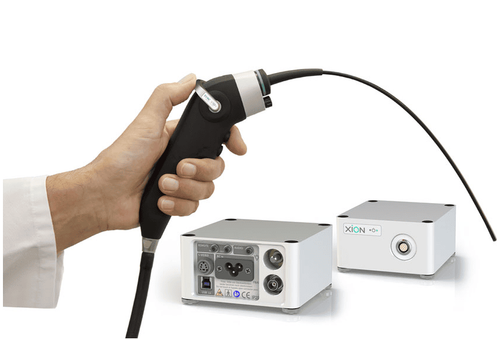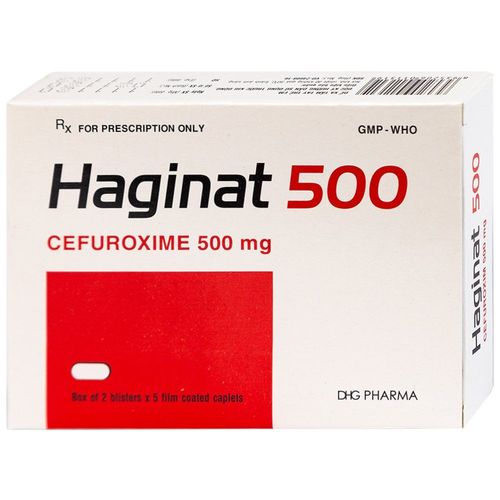This is an automatically translated article.
The article was professionally consulted by Specialist Doctor I, Resident Doctor Dang Thi Ngoan - Pediatrician - Neonatologist, Department of Pediatrics - Neonatology - Vinmec Ha Long International General HospitalIn winter, the ear, nose and throat is the organ that is affected by the weather, easy to get infected and easy to cause complications. Therefore, parents need to know how to clean their babies' ears, nose and throat so that they have a healthy respiratory system even in cold weather conditions.
1. Ear, nose and throat disease - need special precautions
Winter is characterized by quite dry weather, low humidity will easily damage the lining of the nose and throat when the child breathes in. Respiratory diseases are more likely to flare up. It gets cold, children under 3 years old and the elderly suffer from many ear, nose and throat diseases.Ear, nose and throat disease, if not completely treated, can easily become chronic and can cause many other dangerous diseases. With young children, especially infants, children who do not know how to speak, parents need to pay special attention to monitoring the health of their children. If the child has abnormal signs, parents should take the child to the doctor for accurate diagnosis and timely treatment.
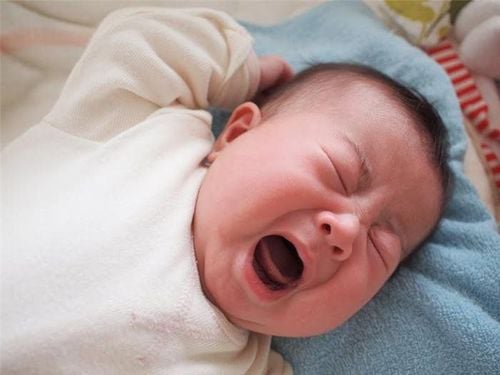
2. How to clean your baby's ears, nose and throat
Ear, nose and throat organs are very vulnerable organs, so cleaning requires meticulous and careful. To properly clean the ears, nose and throat for children, parents should follow these instructions:2.1 Ear cleaning
Newborn babies' ears are quite small, so when cleaning, parents do not need to go deep inside. The mother just needs to take a thin and soft cotton towel, slightly twist a corner of the towel and then slowly put it deep inside the baby's ear, continuing to twist in the direction of the twist of the towel. When wiping the baby's face, the mother can use a soft cloth to wipe the child's ear.When bathing the baby, parents should not lower the baby's head too low because it can cause water or shampoo to enter the child's ear. Besides, when breastfeeding, parents should not let the baby lie on his side to avoid milk reflux into the ear causing infection.
For children over 3 years old, parents can use cotton swabs to clean the baby's ears. It should be noted that cotton swabs must be hygienic, clearly packaged and of a suitable size for the child. The cotton thread at the tip of the toothpick should be soft and smooth to avoid hurting the baby's ear area.
SEE ALSO: Guide to caring for children with otitis media
2.2 Hygiene of the nose and throat
The nose is an important organ, helping to exchange air and breathe, so it needs to be cleaned regularly. If the newborn has mild stuffy nose, liquid nasal discharge, when cleaning the nose, parents can wipe the baby's nose with a soft cloth. In case the child's nasal secretions are thick and there is a runny nose, parents should put 2-3 drops of physiological saline in each nostril, wait for a while, and then gently rub the baby's nose with their hands to soften and remove the rust. out. Many parents can use more nasal aspirators for children, but doctors advise not to abuse this way because it can create pressure and damage the nasal mucosa.When cleaning the baby's throat, parents should prepare a specialized tongue scraper or a clean soft towel. Then, use clean water to wash the soft cloth. Next, wrap a towel on the tip of your index finger and put it in your child's mouth to clean the oral cavity and nasopharynx. In particular, do not use honey on the tip of the child's tongue because it can cause poisoning for babies under 1 year old.
For children over 2 years old, parents can clean their baby's nose and throat by letting them gargle with salt water or spray with sea salt 3-4 times a day.
MORE: When can babies eat honey?
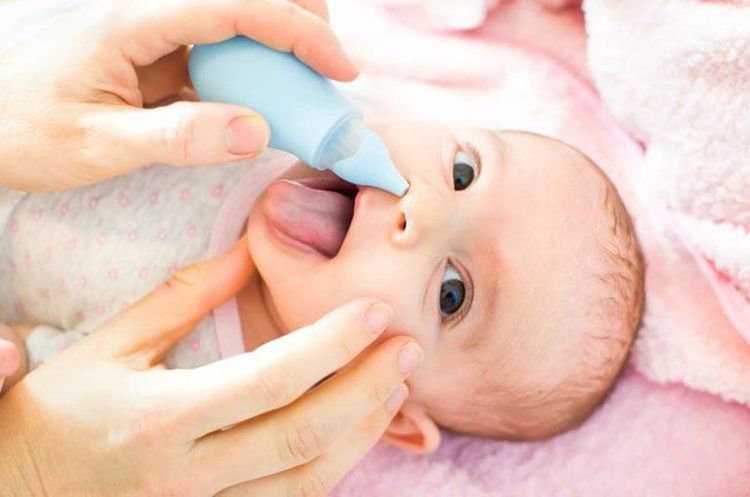
3. Preventive measures for children's ear, nose and throat disease
The following are some measures that parents should apply to prevent the risk of children's ear, nose and throat disease:Give children a full range of essential nutrients. At the same time, the baby should drink enough water and avoid exposure to dusty or smoky environments; Maintain personal hygiene for children by cleaning ears, nose and throat, washing hands before eating and keeping the house clean. Should train children to be self-disciplined in personal hygiene such as brushing teeth, washing hands, rinsing mouth regularly,...; Children should be examined at medical facilities when there are medical symptoms to promptly detect ear, nose and throat diseases and intervene immediately; Fully vaccinated according to age. In particular, the flu vaccine is repeated every year. Daily hygiene of the ears, nose and throat for babies is extremely necessary to avoid the risk of children getting respiratory diseases. Besides, parents also need to pay attention to strengthen the baby's resistance by keeping warm and eating enough nutrients.
Vinmec International General Hospital is a general hospital that has the function of examining and treating ENT diseases such as sinusitis, rhinitis, allergic rhinitis, chronic rhinitis, tonsillitis, and pain. throat, tinnitus and many other diseases. At Vinmec, we have also performed endoscopic diagnosis and treatment with modern medical methods for ENT diseases in young children, which not only brings high efficiency but also minimizes complications of recurrent disease. The great success is because Vinmec is always fully equipped with modern facilities, examination and treatment procedures are carried out by a team of experienced and qualified doctors that will bring about treatment results. optimal for customers.
Please dial HOTLINE for more information or register for an appointment HERE. Download MyVinmec app to make appointments faster and to manage your bookings easily.





